हरित क्रांति
(Hindi: Harit Kraanti; Green Revolution)
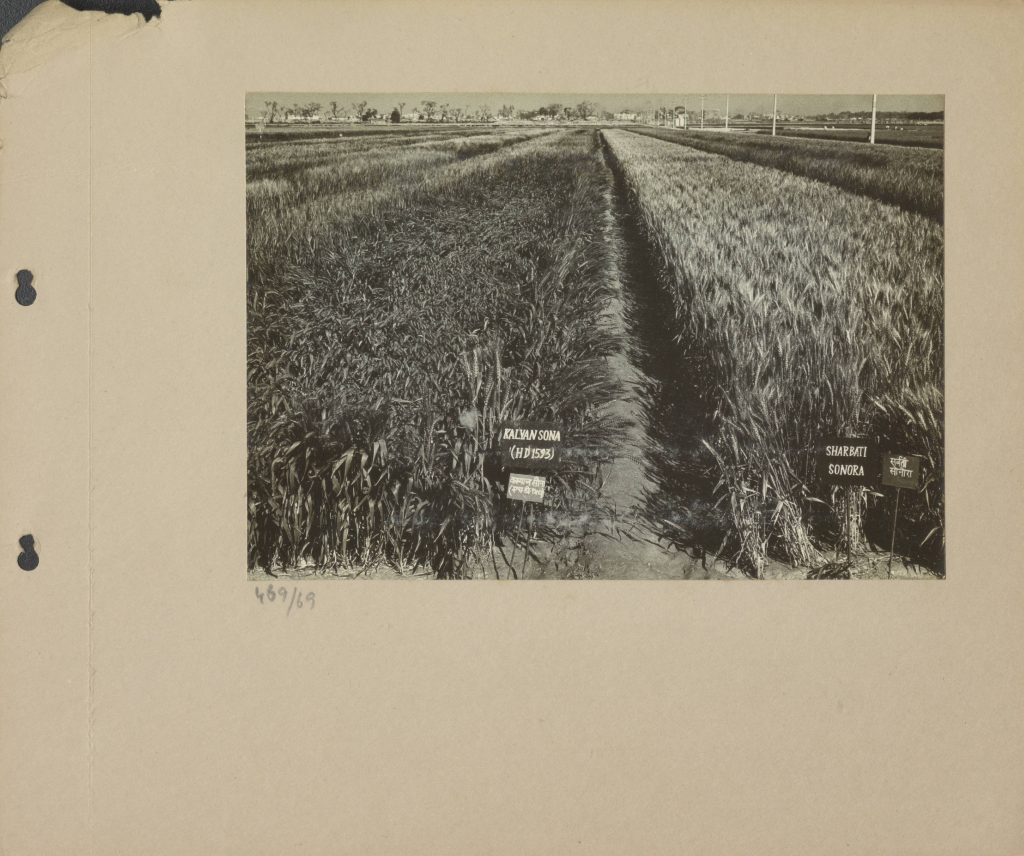
Kalyan Sona and Sharbati Sonora are disease-resistant and high-yielding wheat varieties. Scientists at Indian Agricultural Research Institute, led by MS Swaminathan, developed these varieties from Norman Borlaug’s Mexican wheat dwarfs, rescuing India from hunger and starvation deaths. Image: 007_1_1_45_1_J_0027/MS Swaminathan Papers/Archives at NCBS
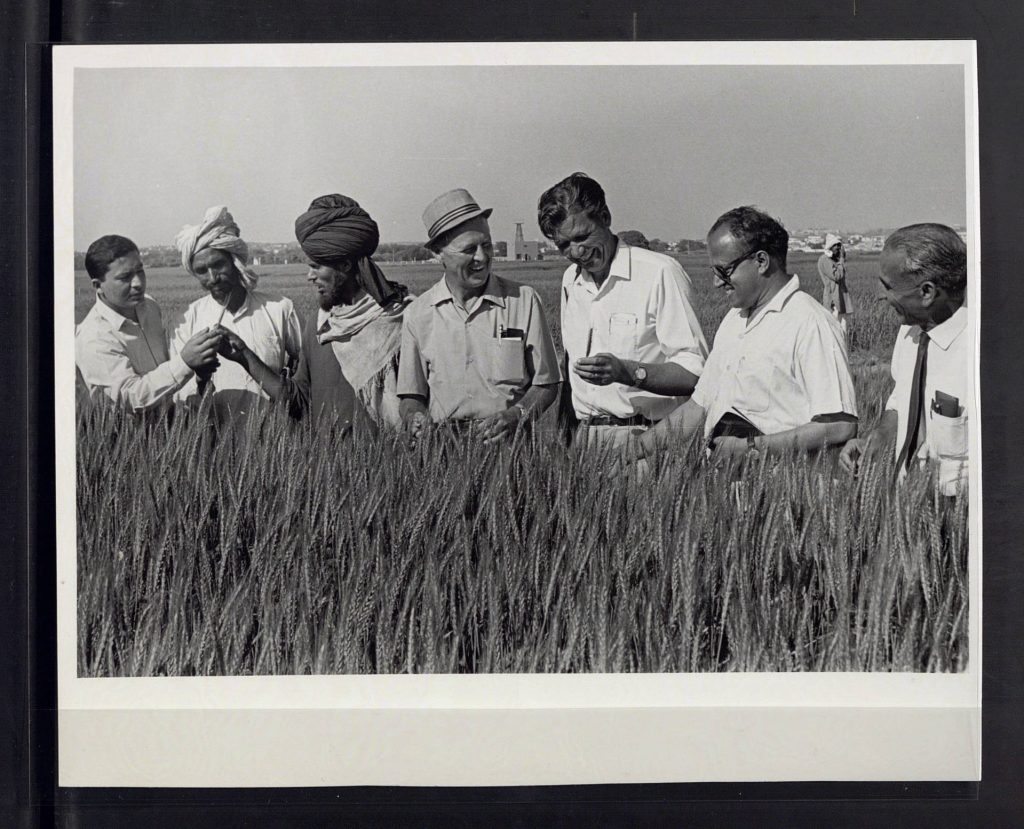
This undated, uncaptioned photograph from the University of Minnesota Archives likely depicts American scientist Norman Borlaug (in hat) and MS Swaminathan (second from right). Image: Photo 138/Norman E Borlaug Papers/University of Minnesota Archives
From 10-minute deliveries to social media timelines, food has become a ubiquitous element of our lives. We are able to access food so easily and with so much abundance that most of us fail to realise how much we take it for granted – an average Indian household wastes 50kgs of food each year. And yet not too long ago, we were a nation that was unable to feed itself. Just a decade after independence, millions, including farmers, had little to no access to food.
The late Dr MS Swaminathan, can then “be seen as the male embodiment of Annapoorna, a form of Parvati, the Hindu deity of food and nourishment, holding in one hand a Leitz binocular research microscope and his field notes in another, instead of the pot and ladle filled with food in popular religious iconography,” writes TR Vivek about the architect of India’s Green Revolution.
Even as India was on its way to achieving food self-sufficiency, Swaminathan warned about the wanton use of chemicals in agriculture, and its impact on soil, water and human health. As chair of the National Commission on Farmers, he brought out a series of reports outline the path out of the agrarian and ecological crisis, batting for a new kind of tranformation: “The future of our agriculture and food security and even national sovereignty depends on our ability to increase productivity per units of arable land and irrigation water in perpetuity without associated ecological harm, a process known as “Evergreen Revolution”.
Swaminathan showed us the path. It is upon us to walk now.
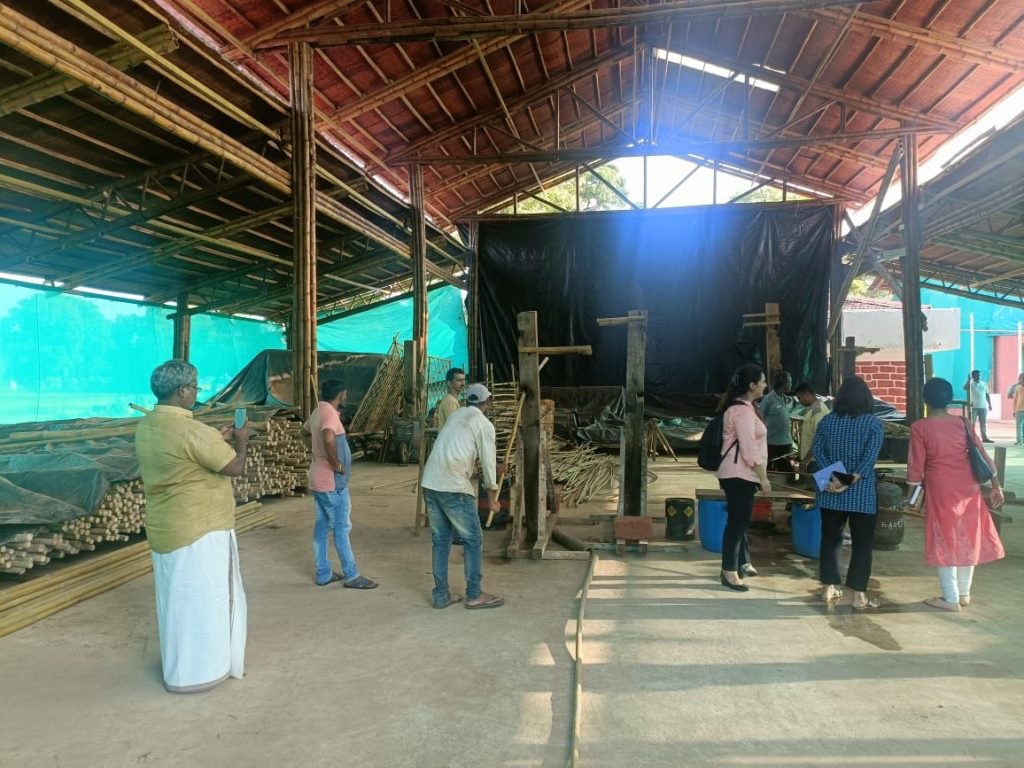
Participants at the bamboo convening visited a workshop in Kudal in Maharashtra’s Sindhudurg district. Photo: Vikas Hosoor/Rainmatter
September at the Rainmatter Foundation felt like kneading flour for a sourdough – we were slow, stuck, stretched, damp and managed to hold it all together. There were several public events – at some we spoke, at others we listened. We spent a couple of days with a wide-range of organisations and individuals engaged in the bamboo sector. #btw, did you know that India is the second-largest producer of bamboo? And that geographically smaller nations such as Vietnam and Thailand export more bamboo than all of India! The convening intended to bring under one roof, the expertise and knowledge, spot the gaps and chart out a roadmap to make bamboo a material of choice for our built environment. Speaking of buildings, the team has been having deep conversations with over 10 partner organisations to frame a strategy for sustainable cities. This is an ambitious undertaking given the many layers that make a city, governance and finance and the relationship that people have with their places.
Midway through the month, we were jolted by Durgesh Agrahari’s sudden passing. A key member of the SayTrees team, Durgesh has been a call-away for many of us in the Foundation team, ever willing to share insights and pitch-in no matter the ask. His enthusiasm, passion and infectious laughter touched us all.
From the Community
Tech4Good Community has been working with several non-profit organisations in ecological conservation, agroforestry and carbon credits to leverage Free and Open Source Software (FOSS) – as part of FOSSFwd and FOSS4Climate initiatives. With WASSAN, they are enhancing the Digital Seed Exchange Marketplace and Natural Farming systems to boost adoption rates as a way of supporting sustainable agriculture. For Agro Rangers, the T4G team is supporting the development of a system to integrate data from grassroots farming communities, even in remote areas with poor internet connectivity. This system transforms the data into an indexed warehouse and an intuitive front-end system for Agro Rangers to derive insights from thousands of carbon sequestration records from farmers on the ground. Details here. The FOSS4Climate initiatives hold the potential to drive sector-wide transformation, promote sustainable practices, data-driven conservation, and intensified reforestation, all in the collective battle against climate change. Make sure you check out T4G’s comprehensive resource library for open-source software playbooks for insights on data for climate action. Or reach out: [email protected]
1st September is observed as #WorldPrimateDay. SauraMandala Foundation, under their TheForgottenFolkloreProject, released a title called When A Huro Sings, to put the spotlight on the endangered Huro or the Western Hoolock Gibbon, one of the only species of apes found in India. The Western Hoolock Gibbon sings a unique song that can be heard for miles. But their whoops and hoops have almost been silenced in the forests of northeast India. Changing farming practices and deforestation are shrinking the habitats that these creatures inhabit, and the book is the team’s attempt to provoke public-problem-solving for conservation and climate action. You can also aid the Centre for Wildlife Studies’ conservation plans for these vulnerable primates and their habitats by contributing to funds for young scientists. Every rupee counts, so consider contributing here!
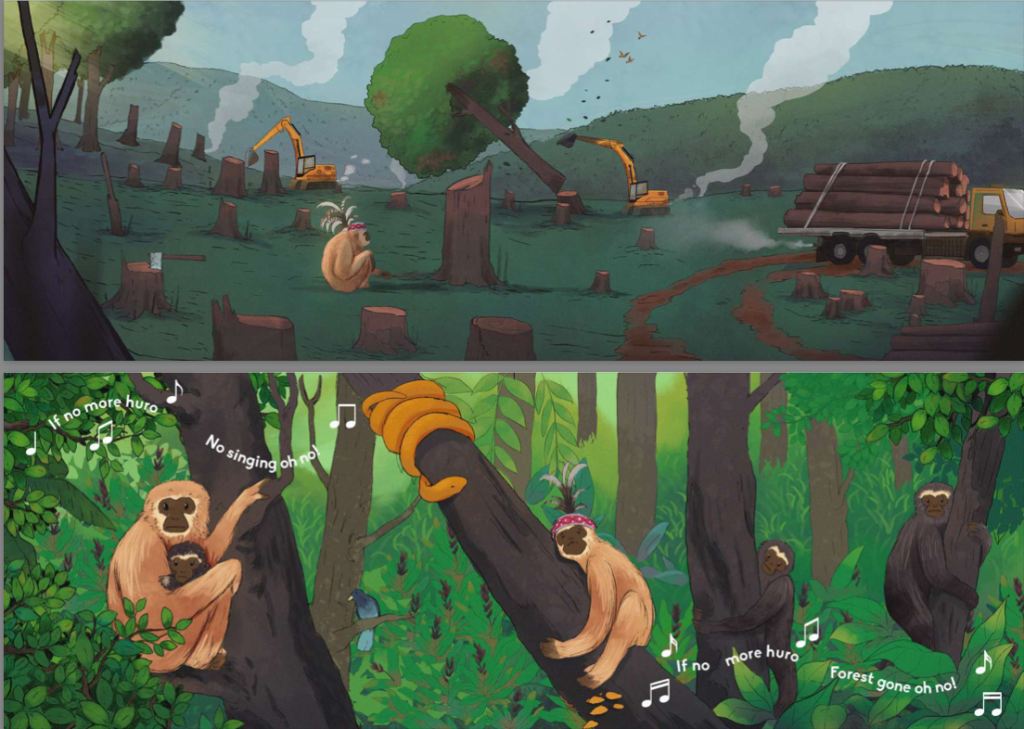
Industree Foundation co-founder Neelam Chhiber spoke about scaling climate finance for frontline communities at the Clinton Global Initiative 2023, a gathering of global leaders attempting to address challenges such as climate change and inclusive economic growth. India can build a more regenerative economy by giving women a share of more money and economically empowering them by enabling them to participate in carbon sequestering activities, she said. This would not only address the declining participation of women in the labourforce but also “do good for communities by intersecting equity, climate and gender, and enable a better society for everyone.”
Solid Waste Management Round Table (SWMRT) has been consistently running a sustainable menstruation awareness campaign for several years; Sustainable menstruation refers to adopting menstrual practices that are healthy for individuals and have a negligible environmental impact. The team organised events in Yadgiri, Raichur and Bellary districts in Karnataka to engage with community members and the local administration officials. They also conducted workshops and training sessions in several colleges in Bangalore, including at Jyothi Nivas PU College, SSMRV and Christ College. The sessions focus on menstrual hygiene, the environmental impact of traditional menstrual products and the importance of adopting sustainable alternatives like menstrual cups and cloth pads.
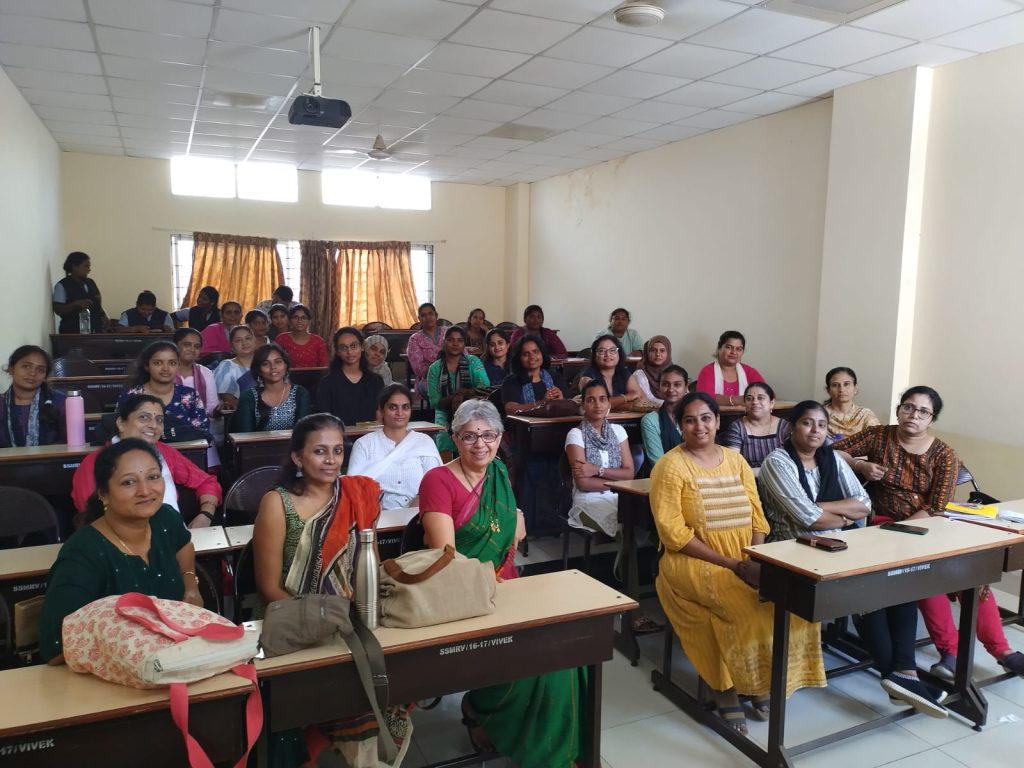
Sustainable menstruation workshop at a college in Bangalore. Photo: SWMRT
Stat of the month
37,000+
alien species have established themselves worldwide and 200 new alien species are being recorded every year, according to the IPBES Invasive Alien Species Assessment. Of the 37,000, more than 3,500 alien species globally are invasives; the economic cost of invasive species is estimated to be more than $423 billion, or roughly the same as Greece’s GDP.
Noticeboard
Take the pledge: The festive season is upon us and it’s a cheerful time to take the No Corporate Gift Box Pledge. From the gift to the packaging to the fuel spent in shipping, the Corporate Gift has an environmental cost. Instead, consider giving to a cause instead!
Hyderabad now has a 21km cycling track… with solar panels! This is the first such track in India, and the outcome of the incessant effort of the cycling community of Hyderabad – read all about how they did it in their own words!
The A-Z (almost) glossary of climate change is available in five languages! Keep it handy, and thank the good folks at The Third Pole for putting it together.
Janaagraha is scheduled to host its Annual Urban Conclave on Shaping India’s Urban Agenda on the 17th and 18th October in New Delhi. The focus will be on city finance, localising climate action for cities as well as Janaagraha’s annual Survey of India’s City-Systems (ASICS) 2023 report. Agenda and speakers here.
The state of Guajarat banned the exotic mangrove species, Conocarpus. Among other reasons, serious pollen allergies and respiratory problems have been reported in the vicinity of their plantations, states this explainer on why this is a problematic species.
Free movies about climate resilience: Bangalore Sustainability Forum is hosting the second edition of Jacaranda Tales at two venues in the city from the 6th-10th October. Schedule and registration here.
Resource: A timeline of the Great Nicobar Island project, which proposed chopping down nearly a million trees. The date-wise timeline links to 130 documents and has been compiled by researchers Pankaj Sekhsaria and Srishti Saxena.
Current Conservation’s latest edition features not just marine creatures such as rhino rays, but also puts the spotlight on people – Satish, Anne & Kalumangothi – who make conservation possible!
ClimateFRAUD is a draft framework that can be used to identify false solutions proposed in the context of the climate and nature emergency (CNE). Originally created by the Federation of the Huni Kui Indigenous Peoples of Acre, in the Amazon, it has been collaboratively redesigned in the context of the Moving With Storms CNE Program of the Peter Wall Institute for Advanced Studies, at the University of British Columbia, Canada.
Parting Shot
Why Being A Person of Place Matters
“The untethered have a harder time seeing and feeling the harm climate change causes, and abandon any pain that does surface more readily. The untethered will minimize their personal discomfort, moving or shielding themselves from harm, doing little to reduce global risks in the process. In contrast, the place-based can feel the pain but also the benefits of digging in for something they love,” writes biologist and climate educator Spencer Scott in his newsletter As If We Were Staying. (Thanks for sharing, Bhuvanesh!)
Until next time, may your roads be auspicious, śubhāste panthānaḥ santu
Team Rainmatter Foundation
